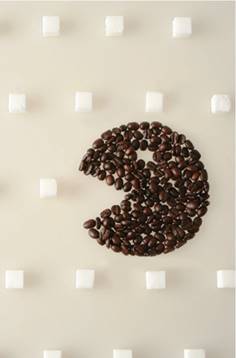REACTIONS TO DIETARY CHANGES
ADVERSE REACTIONS
when stopping certain food/drink consumption
Stopping certain food/drink consumption may produce withdrawal symptoms, such as headaches, which fortunately begin to clear up after a few days. Here you can find two example of stopping food/drink consumption: coffee and sugar.

A study published in 2005 in Psychopharmacology showed for 48 moderate to moderate-high caffeine consumers a marked effect of caffeine withdrawal on self-rated mood and other feelings. Participants who had consumed regular tee and/or coffee for 3 weeks reported negative effects (heightened feelings of tension, light-headedness, and jitteriness, more headache, and lower clear-headedness, and energy compared to participant who had consumed decaffeinated tea and/or coffee.

Also stopping SUGAR consumption you may get withdrawal symptoms (anger, anxiety, appetite changes, fatigue, flu-like, insomnia, irritability, sleep changes) although the severity of symptoms experienced is up for debate. They depend on how long and how much sugar have been consumed, and on people different physiology. People describe symptoms of withdrawal when they deprive themselves of sugar-rich foods. The experimental question is whether or not sugar can lead to a natural form of “food addiction”. Sugar is noteworthy as a substance that releases opioids and dopamine and thus might be expected to have addictive potential.
Actually international scientific literature does not account for sugar withdrawal in humans but a study published in 2008 in Neuroscience & Biobehavioral Reviews shows something interesting in animals. Researchers found in fact behavioral depression during naloxone-precipitated withdrawal in intermittent sugar-fed rats.
ALLERGIES Back to reactions to dietary changes Back home
